Contemporary Islam: Analysis of Veiling and the Rise of Global Jihad
VerifiedAdded on 2023/01/18
|5
|846
|99
Essay
AI Summary
This essay delves into two significant aspects of contemporary Islam: the debate surrounding veiling and the factors contributing to the rise of global jihad. The essay begins by presenting contrasting views on veiling, highlighting its perceived role as either a form of oppression or a symbol of cultural identity and personal strength. It then explores the etymological, theological, and political dimensions of the concept of jihad, differentiating between its core meaning of self-purification and struggle for justice, and its interpretation in the context of global conflicts. The essay attributes the rise of global jihad to events such as the Iranian Revolution of 1979 and the bombing of the US Embassy in Beirut in 1983, which fueled anti-Western sentiment and the perception of a clash of civilizations. The author references key academic sources to support their arguments, providing a multifaceted analysis of these complex issues within the framework of contemporary Islamic discourse and political dynamics.
1 out of 5
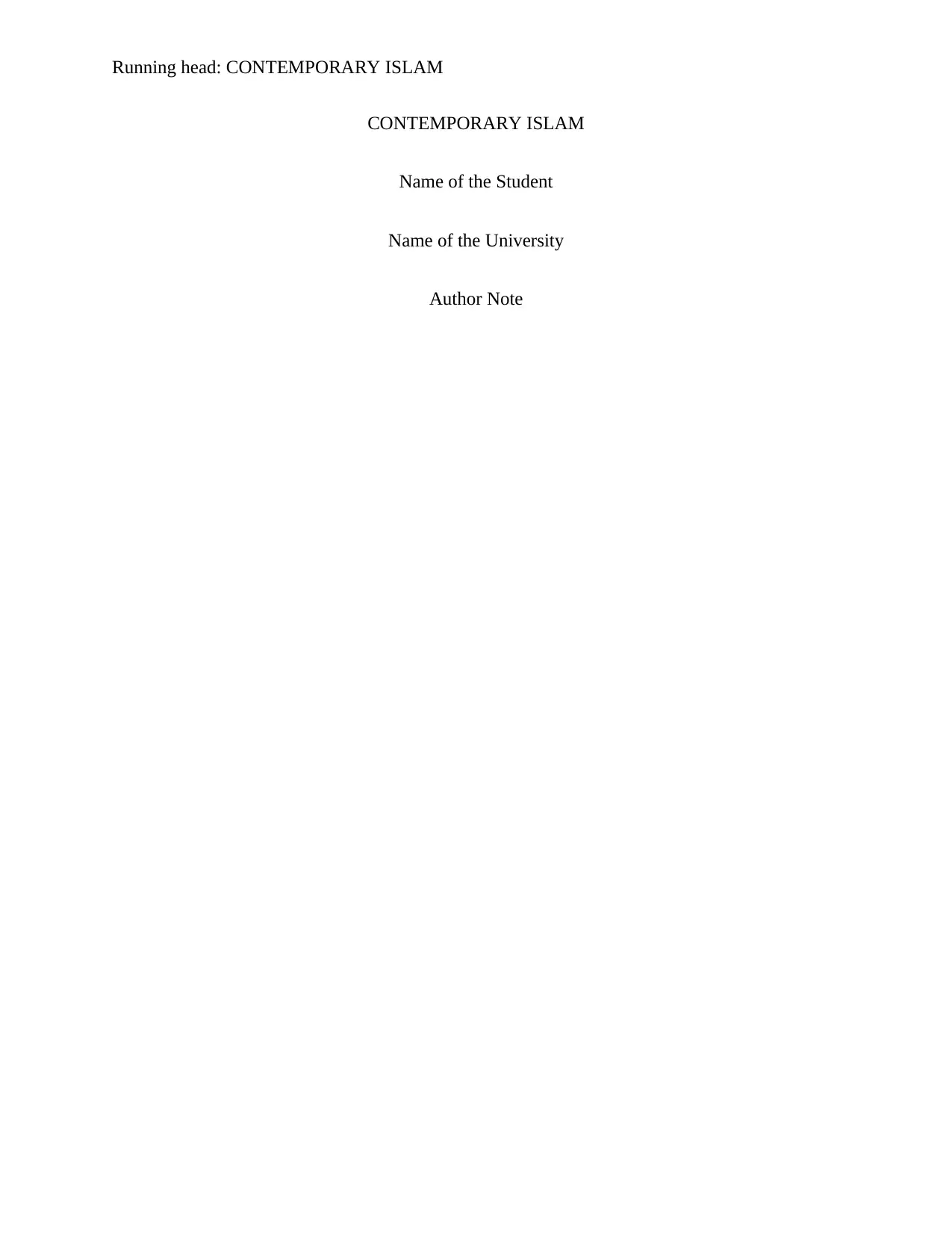
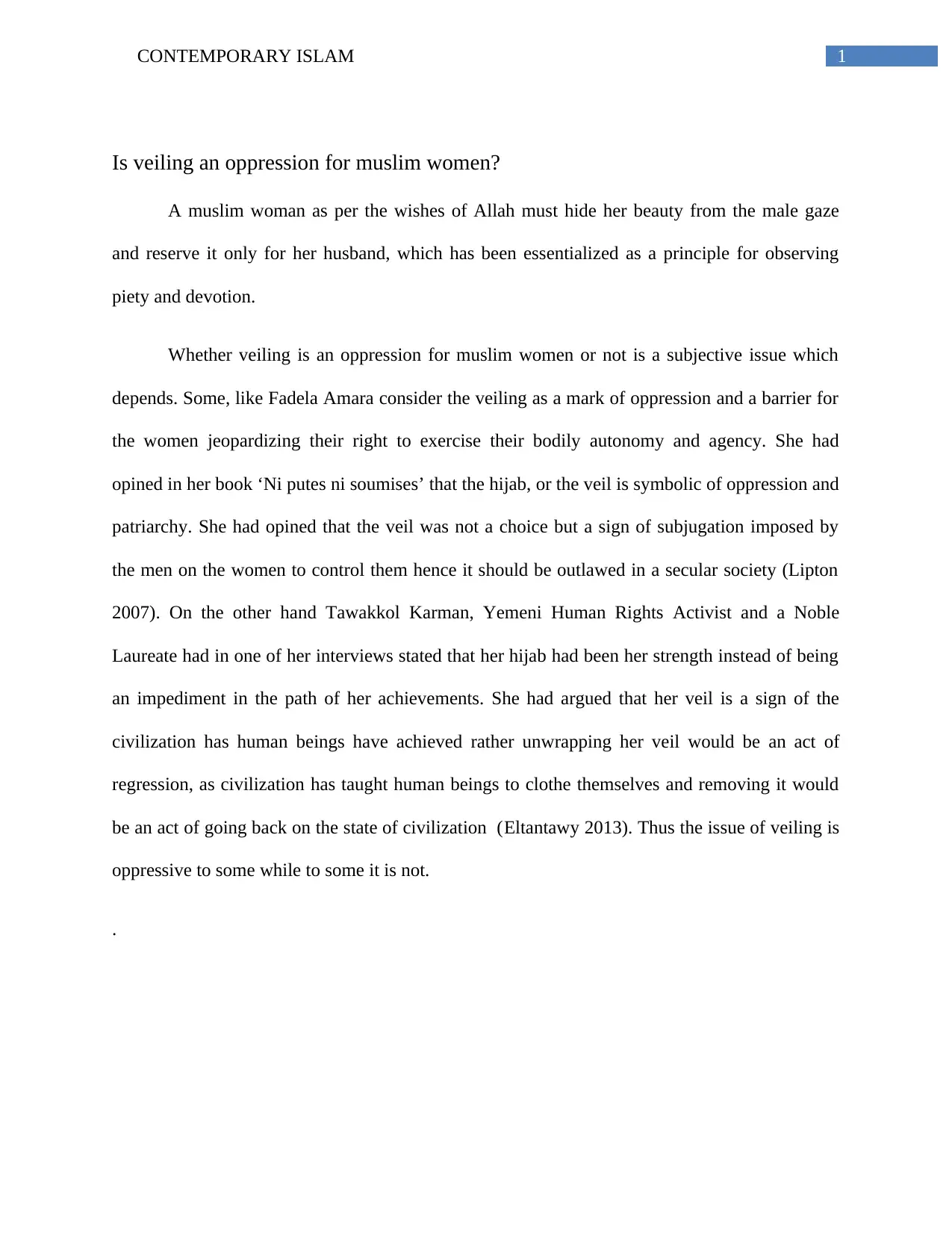
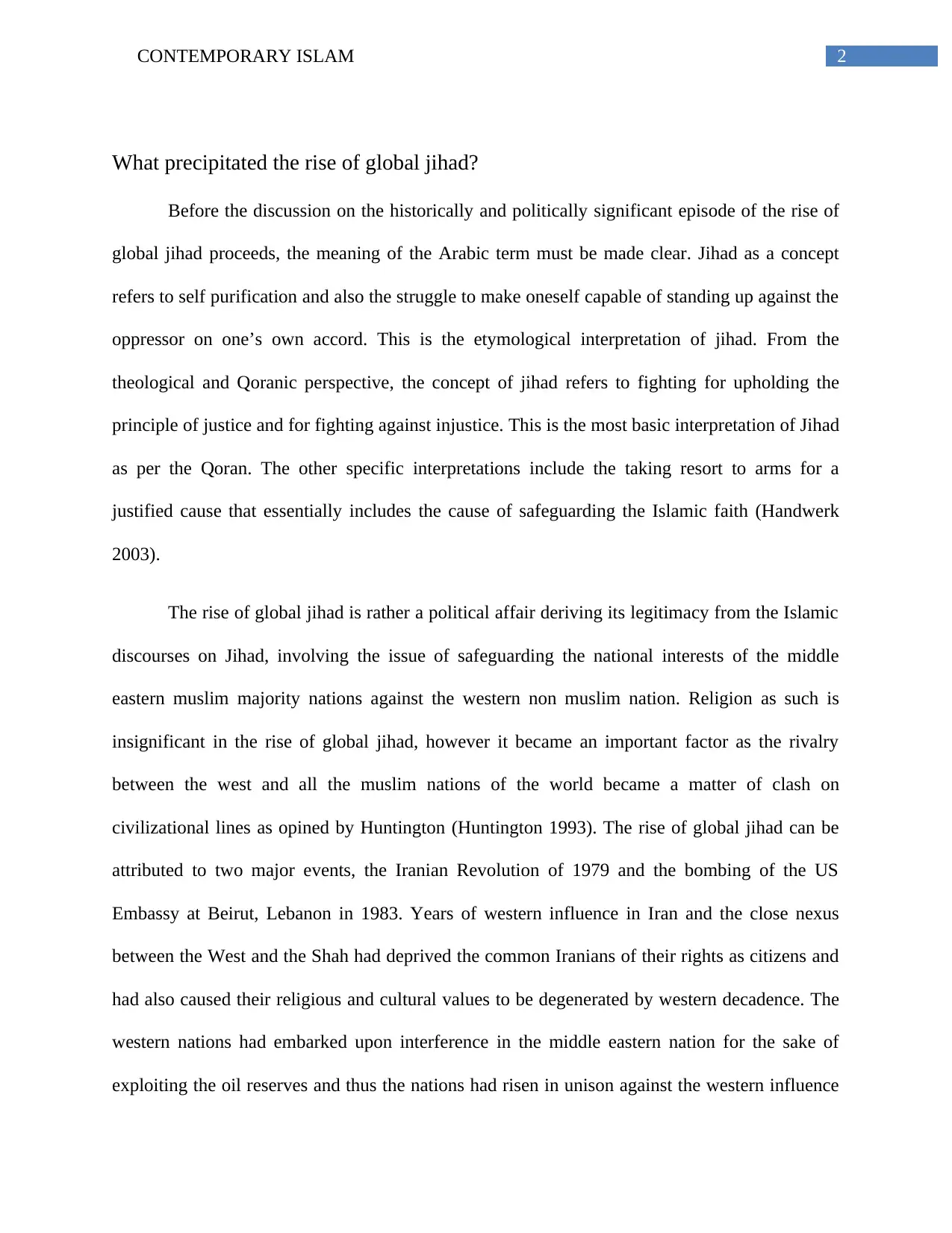

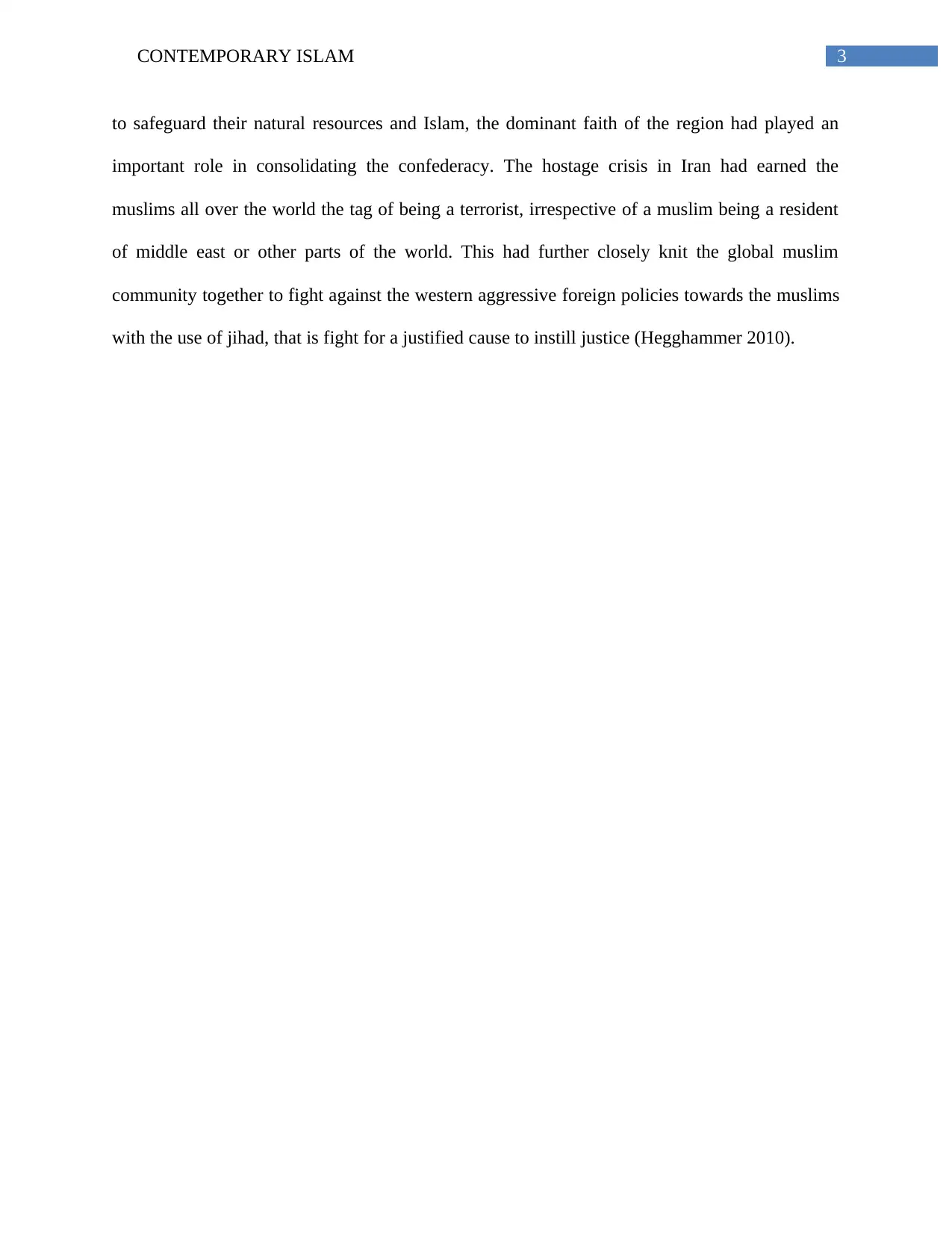
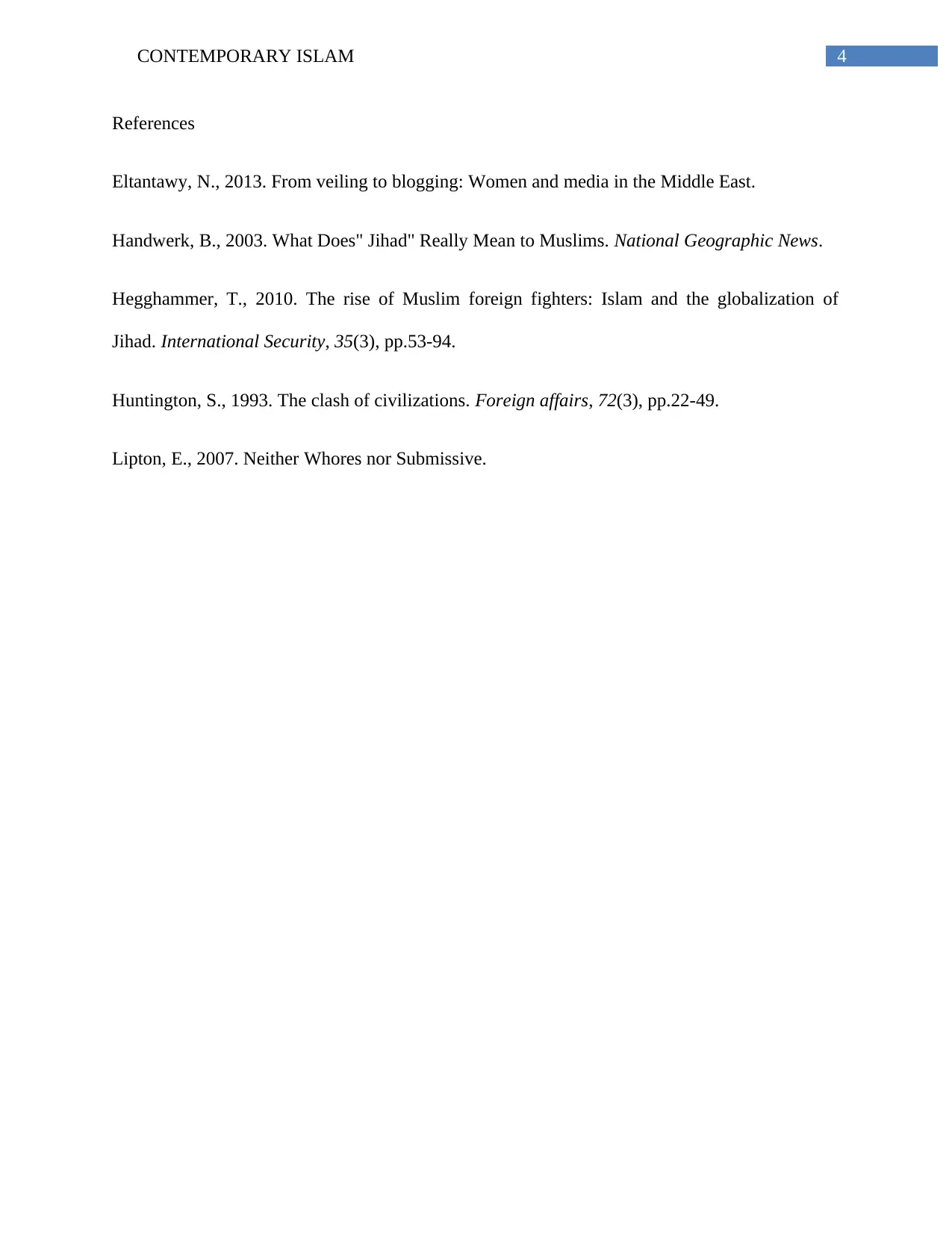

![[object Object]](/_next/static/media/star-bottom.7253800d.svg)